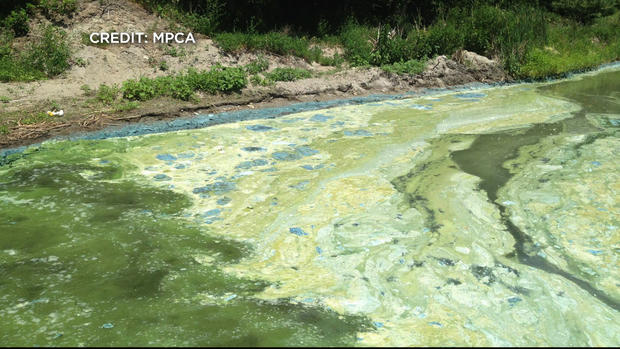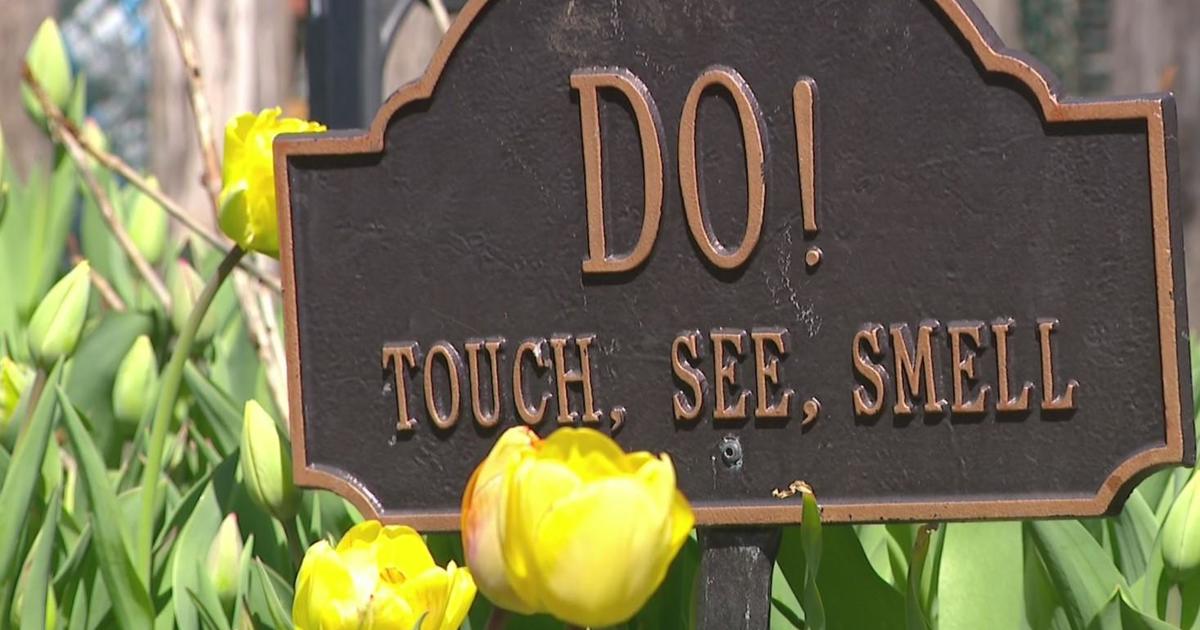MPCA Warns Of Blue-Green Algae Boom
MINNEAPOLIS (WCCO) -- Many people got their lake fix over the holiday weekend.
But before you jump back in the water, you might want to take a closer look at it first.
The Minnesota Pollution Control Agency is warning people about blue-green algae. It forms after high temperatures combine with runoff from rainfall, which is exactly what we have had recently.
Cool and gray is not enough to keep people away from the water in Minnesota, nor rambunctious pups like Angus and his owner, Janet Belland.
"I've been going in the water with him, walking out in the sandbar and then playing fetch," Belland said.
And grabbing what she throws in St. Paul's Lake Phalen is the only thing she hopes he bites.
"Definitely important, something that we always look at and make sure that he's not consuming anything that would be dangerous or anything we don't know what it is," Belland said.
Right now, that is blue-green algae -- a soupy plant that floats atop water like a spilled paint -- which can make people and animals sick when ingested.
"The water might not even be green, but that toxin is still being produced by the algae," said environmental scientist Jordan Donatell.
Usually it forms later in the summer, but summer-like temperatures in May -- combined with recent rains -- can create an early bloom. Ingesting blue-green algae can lead to nausea and vomiting for humans. Dogs might struggle breathing and get sick -- sometimes killing them.
"When you're in doubt of the conditions, it smells funny, it looks funny, and something tells you it's not right, keep your pets or your kids or yourself out of the water," Donatell said.
Advice that Belland will gladly take, on behalf of Angus.
"Maybe learning more today, something more to be aware of and to look for," Belland said.
If you happen to come in to contact with blue green algae, you should wash it off thoroughly. Experts say a change in wind direction and more rainfall is one of the few ways to disrupt the algae's growth.




